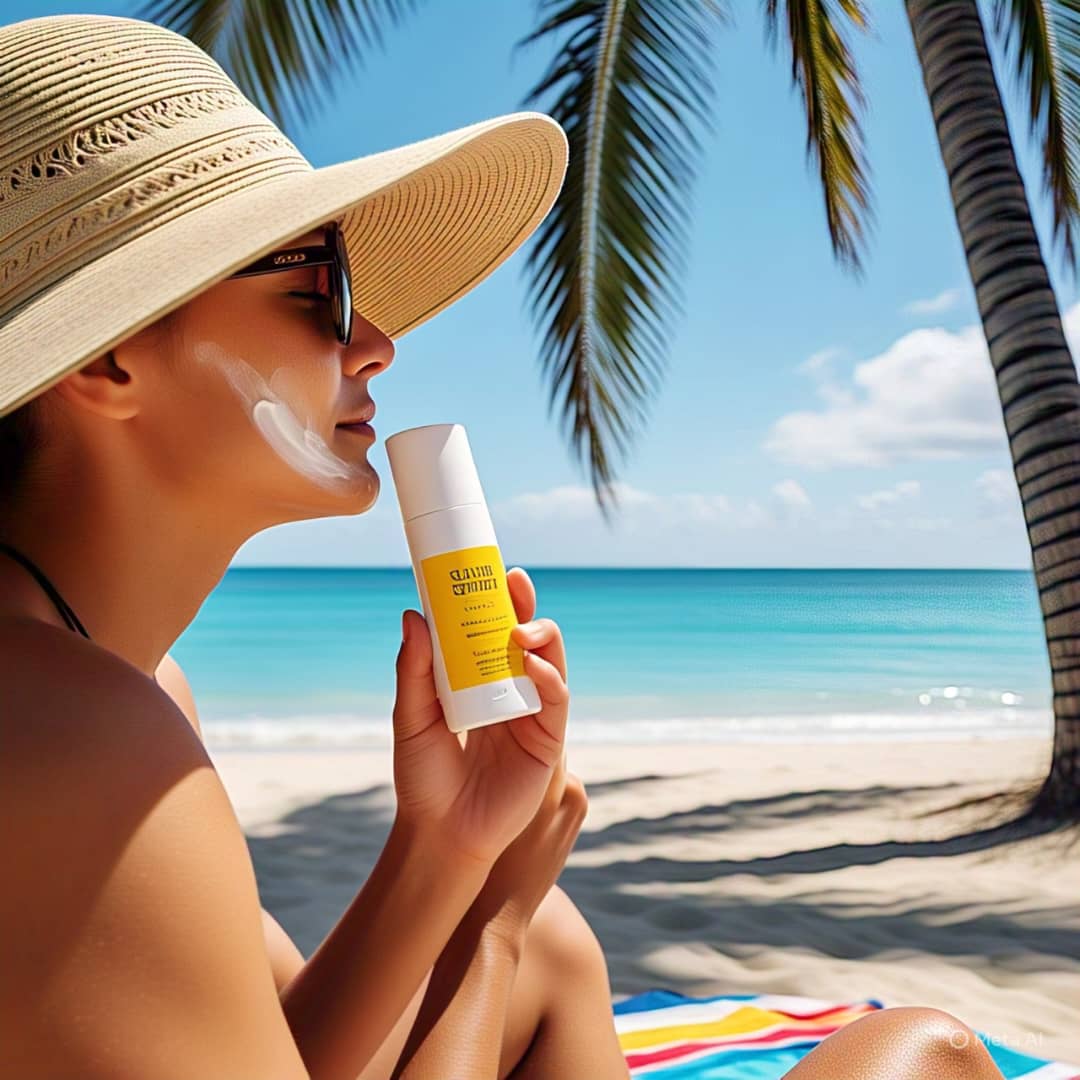Hey Family, let's talk about some sexual good hygiene tips. Below are a few shallow tips y'all know but after this common one's, we will dig in deeper so ensure to read till the end and learn some new fun facts you never knew!
- Wash Regularly: Make sure to maintain daily hygiene by washing your intimate areas with warm water and mild, unscented soap. Avoid harsh products that can irritate sensitive skin.
- Urinate After Intercourse: For both men and women, urinating after sexual activity can help flush out bacteria and reduce the risk of urinary tract infections (UTIs).
- Wear Breathable Fabrics: Opt for cotton underwear to allow proper airflow and reduce moisture that can lead to bacterial or fungal growth.
- Practice Safe Sex: Using condoms can prevent sexually transmitted infections (STIs) and also help maintain hygiene during sexual activities.
- Trim or Groom Carefully: If you choose to groom pubic hair, do so carefully to avoid cuts or irritation. Always use clean and sanitized tools.
- Stay Hydrated: Drinking plenty of water supports your body’s natural cleansing processes and helps maintain overall health.
- Change Out of Wet Clothes: Avoid sitting in damp or sweaty clothes for prolonged periods to prevent infections.
- Pay Attention to Your Partner’s Hygiene: Mutual hygiene practices ensure a healthier and more enjoyable experience for both partners.
- Regular Checkups: Visit a healthcare provider regularly for sexual health screenings, even if you feel fine.
- Listen to Your Body: If you notice any unusual symptoms like itching, discharge, or discomfort, consult a medical professional promptly.

Maintaining good sexual hygiene is important for overall health and well-being. Here are some tips:
General Tips
- Shower regularly: Keep your genital area clean by showering daily, especially after exercising or sweating. Also don't forget to bath or clean up after playing and having s^^x.

- Use mild soap: Avoid harsh or scented soaps, which can irritate the genital area. Instead, use mild, fragrance-free soap.
Mild soap refers to a gentle, fragrance-free, and non-irritating soap that won't strip the skin of its natural oils or cause irritation. It's ideal for sensitive areas, including the genital area. Look for soap labeled as:
- Fragrance-free
- Hypoallergenic
- Gentle
- pH-balanced
Avoid harsh or scented soaps, which can cause discomfort and irritation.

- Wipe correctly: Wipe from front to back to prevent bacteria from the anus entering the urethra. Also clean or rinse very clean for those who enjoy Oral. We all love a sweet and clean fronts and backs right!
For thorough cleaning, we can consider using:
-Gentle, fragrance-free wipes
-pH-balanced wipes
-Antibacterial wipes (for specific needs)
Some popular options which includes:
- Baby wipes (gentle and fragrance-free)
- Intimate wipes (specifically designed for genital area)
- Cleansing wipes (for everyday cleaning)
Lets consider your individual skin type and needs. Always read labels carefully don't be in a hurry! 🤣

For Women
- Clean the vulva: Gently clean the outer area of the vulva, but avoid inserting anything into the vagina.
- Wear breathable underwear: Choose cotton underwear to help keep the area dry and reduce irritation.
- During menstruation: Change sanitary products regularly, and wash your hands before and after handling them
- Avoid douching: Douching can disrupt the natural balance of bacteria in the genital area, leading to infections.

For Men
- Clean the penis and scrotum: Gently clean the penis and scrotum with mild soap and water.
- Pay attention to the foreskin: If you have a foreskin, gently retract it and clean underneath.
- Also trim your nails and keep them clean, of course we all know why 😋
- Wear clean clothes and socks daily

When to Seek Medical Help
- Unusual discharge or odor: If you notice unusual discharge or odor, consult a healthcare provider.
- Itching or irritation: If you experience persistent itching or irritation, seek medical attention.
Some important things to keep in mind:
- Be gentle: Be gentle when cleaning the genital area, as rough handling can cause irritation.
- Use protection: Use condoms to prevent STIs and unwanted pregnancy.
- Stay hydrated: Drink plenty of water to help your body flush out toxins.
Get regular check-ups and screenings to monitor your health and floss your teeth twice a day for good oral hygiene. Use deodorant or antiperspirant to stay fresh. Wash your hands frequently, especially after using the bathroom and before eat your partner 😜. Keep your hair clean and styled neatly. Wear clean underwear daily.

SOME FUN FACTS YOU NEVER KNEW EXISTED
- Ancient Practices: In ancient Egypt, both men and women used a mixture of honey and natron (a natural salt) as a form of genital hygiene and to prevent infections.
- Pubic Hair Myths: Pubic hair serves as a protective barrier, reducing friction during sex and preventing bacteria from entering the genital area. Shaving it can increase the risk of irritation and infections if not done carefully.
- pH Balance Matters: The vagina has a natural pH level of around 3.8 to 4.5, which helps maintain healthy bacteria and prevent infections. Using harsh soaps or douches can disrupt this balance.
- Semen's Effect on pH: Semen has a pH level of about 7.2 to 8, which can temporarily alter the vaginal pH when introduced, potentially leading to yeast infections or bacterial imbalances in some individuals.
- Toothbrushes vs. Genital Hygiene: Studies have shown that some people take better care of their oral hygiene than their sexual hygiene, yet both areas are equally crucial for overall health.
- Cotton Underwear is Key: Wearing cotton underwear allows proper airflow and reduces moisture, helping to prevent bacterial and fungal growth in the genital area.
- Urination After Sex: While it’s often recommended for women to urinate after sex to prevent urinary tract infections (UTIs), this practice isn’t as necessary for men due to differences in anatomy.
- Natural Lubrication Changes: A person’s natural lubrication can fluctuate depending on their hydration levels, diet, and even stress, impacting sexual comfort and hygiene.
- Reusable Menstrual Products: Menstrual cups and cloth pads are growing in popularity as eco-friendly options, but they require strict cleaning routines to prevent infections.
- Probiotics for Genital Health: Eating probiotics like yogurt or taking supplements can support healthy bacteria in the genital area, reducing the risk of yeast infections.
- Sweat and Hygiene: After a workout or intense physical activity, it’s important to change out of sweaty clothes promptly to avoid bacterial growth in the genital area.
- Condom Allergies: Some people are allergic to latex condoms, which can cause irritation and discomfort. Alternatives like polyurethane or non-latex condoms are available for those with sensitivities.
- Daily Habits Matter: Regularly washing the genital area with warm water (without harsh soaps) and wearing breathable fabrics can go a long way in maintaining sexual hygiene.
- Sex Toys Require Care: Regular cleaning of sex toys with appropriate cleaners is crucial to avoid infections. Always check the material and follow manufacturer guidelines for cleaning.
- Hydration Impacts Odor: Staying hydrated helps maintain a healthy balance of fluids in the body and can reduce any unusual odors in the genital area.






